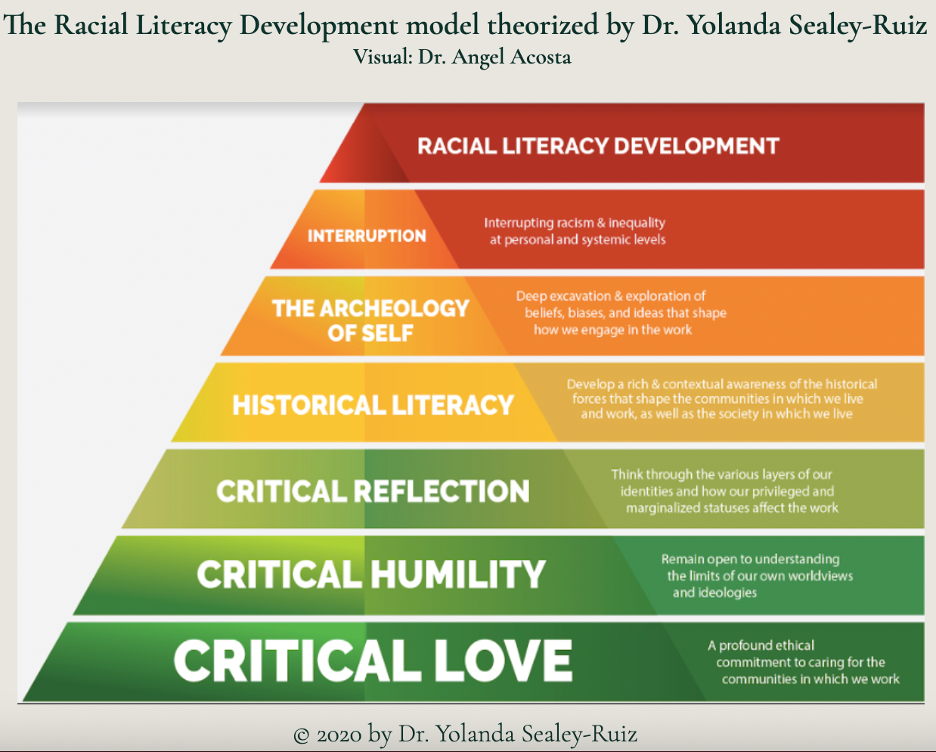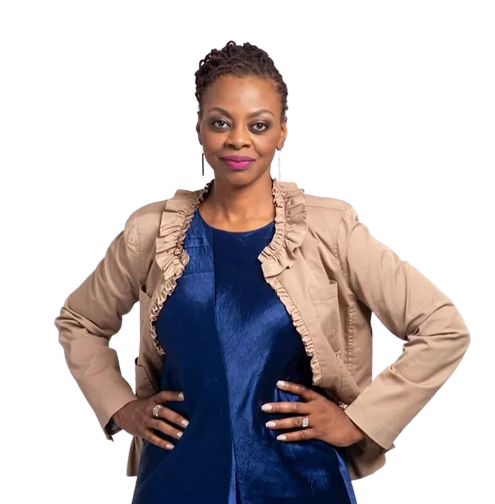
I am excited to share with attendees how racial literacy development, and more specifically my concept of the Archaeology of Self can help computer science teachers think more about diversity in the classroom and beyond
Full Story
I am thrilled to be selected as a keynote for this year’s CSTA annual conference in Chicago, Illinois from July 14 – July 17, 2022. I am excited to share with attendees how racial literacy development, and more specifically my concept of the Archaeology of Selfcan help computer science teachers think more about diversity in the classroom and beyond. In this blog, I briefly share about these two concepts, and hope to encourage educators to think about how they can enhance the diverse voices in their classrooms which has implications for computer science education, and the future of the computer science industry.
Computer Science Teachers: A Mighty Force
Teachers are the (in)visible force behind any pedagogy. Even when educators insist that their teaching approach is student centered, they still must acknowledge that their beliefs (as well as their biases) impact how and what they teach. It is important for teachers to take the time to think about how the pedagogical and curricula moves they make in the classroom directly influences their students’ confidence in learning a subject, and often dictates whether or not a student can envision themselves as having a future career in the subject area. There is perhaps no more important area in education to make this connection between students’ current learning and future careers than computer science.
Computer science, which involves technologies – present and evolving – is central to 21st century life. Given the vast diversity present in our schools and nation, it is critical that computer scientists reflect this diversity, and seek to build programming to solve a variety of problems, and also create technology that enhances the lives of people who live in a diverse society. We know this is not the case. There is a lack of diversity among computer scientists in our K-12 classrooms, and this lack of diversity carries over into boardrooms, organizations, and tech companies. It is not an exaggeration to say that to build diversity in the computer science field for tomorrow, we must begin today. Right now in our K-12 computer science classrooms, there are many children who cannot be what they cannot see. There is an urgent need to recruit more BIPOC (Black, Indigenous, People of Color) computer science teachers. But where will they come from? And, as it will take some time for the computer science education field to build this diversity, what can be done in the meantime?
Racial Literacy Development and the Archaeology of Self in Computer Science
Teachers of computer science first must become aware about the lack of diversity in the field, and have more honest conversations about why this exists. There must be discussion about the lack of BIPOC and women in computer science teaching and the profession. Teachers must recognize a possible bias – sometimes when they don’t see something in the present, it makes it difficult for them to imagine it for the future. Computer Science teachers also need to examine how they welcome BIPOC colleagues, and be honest about which students they believe are ready to be the next generation of teachers and industry professionals. Teacher bias often keeps students from “seeing themselves” as future computer scientists, and not having many BIPOC colleagues often serves as a “confirmation” for computer science teachers about who will go on to be future computer science teachers or work at some of the nation’s largest technology companies. There are actions that computer science educators can take to interrupt the cycle of bias, and it all starts with the self.
In my research, I write about a theory and practice called racial literacy development.
Racial literacy – a concept coined nearly 20 years ago by sociologist Dr. Frances Winndance Twine is a theory becoming more prominent in the field of education. I began writing about Racial Literacy in 2011 and in 2020, with the assistance of my colleague Dr. Angel Acosta, created this visual representation of what I call the Racial Literacy Development Model. This is my attempt to move from theory to practice in education.

Racial Literacy requires truth about our personal and collective histories. There are several components to racial literacy development but what’s most important to understand is that it requires a process of deep self-reflection that calls us to have the courage to challenge our beliefs, recognize our biases, and release our fears when it comes to race. It is what I call performing an Archaeology of Self – a deep examination of what influences how we teach, and how we treat the students in our classrooms. In addition to facing their own biases about some of their students, teachers must recognize that their classrooms need to become spaces where biases are openly talked about, and how technology helps or harms the mediation of those discussions.
Advancing Racial Literacy for the Digital Age
Today’s students want to use their digital expertise and the power of their voice to respond to issues of inequity in society. It is essential that teachers develop their own racial literacy to support student digital activism. From talking about race and racism to resisting the harmful narratives that circulate online but impact face-to-face interactions in the classroom, teachers must navigate sociotechnical spaces with a critical lens and develop strategies to help their students do the same. My colleague, Detra Price-Dennis and I wrote a book to help increase educators’ capacity and agency to respond to inequities in digital spaces, and teach create the classroom conditions for their students to do the same – we suggest that making space for them to respond to what they care about through digital means, is as important as developing them to be future computer scientists. There are many approaches computer science teachers can take to make their classrooms more inclusive. The book Advancing Racial Literacies in Teacher Education: Activism for Equity in Digital Spaces offers many ideas, here are a few:
- Teachers must build their racial literacy and become more reflective about how their biases impact how they teach computer science.
- Teachers should educate themselves on what they were likely not taught in school about BIPOC inventors, engineers, mathematicians, and computer scientists – and include these individuals in their curriculum.
- Educators need to develop curricula that leverage multimodal ways of cultivating racial literacy.
Computer science teachers, quite literally, are a force of the future. They can help build a diverse future for K-12 computer science education and industry by taking an honest look at their beliefs, biases, and practices today.
See you in Chicago!
About the Author
 Dr. Yolanda Sealey-Ruiz is an award-winning Associate Professor at Teachers College, Columbia University. Her research focuses on racial literacy in teacher education, Black girl literacies, and Black and Latinx male high school students. A sought-after speaker on issues of race, culturally responsive pedagogy, and diversity, Dr. Sealey-Ruiz works with K-12 and higher education school communities to increase their racial literacy knowledge and move toward more equitable school experiences for their Black and Latinx students. Dr. Sealey-Ruiz appeared in Spike Lee’s “2 Fists Up: We Gon’ Be Alright”, a documentary about the Black Lives Matter movement and the campus protests at Mizzou. Her co-authored book [with Dr. Detra Price-Dennis] Advancing Racial Literacies in Teacher Education: Toward Activism for Equity in Digital Spaces was published in April 2021.
Dr. Yolanda Sealey-Ruiz is an award-winning Associate Professor at Teachers College, Columbia University. Her research focuses on racial literacy in teacher education, Black girl literacies, and Black and Latinx male high school students. A sought-after speaker on issues of race, culturally responsive pedagogy, and diversity, Dr. Sealey-Ruiz works with K-12 and higher education school communities to increase their racial literacy knowledge and move toward more equitable school experiences for their Black and Latinx students. Dr. Sealey-Ruiz appeared in Spike Lee’s “2 Fists Up: We Gon’ Be Alright”, a documentary about the Black Lives Matter movement and the campus protests at Mizzou. Her co-authored book [with Dr. Detra Price-Dennis] Advancing Racial Literacies in Teacher Education: Toward Activism for Equity in Digital Spaces was published in April 2021.Her first full-length collection of poetry Love from the Vortex & Other Poems (Kalediscope Vibrations LLC) was published in March, 2020, and her sophomore book of poetry, The Peace Chronicles, was released in July of 2021. Follow Yolanda on Twitter @RuizSealey and Instagram @yolie_sealeyruiz.
